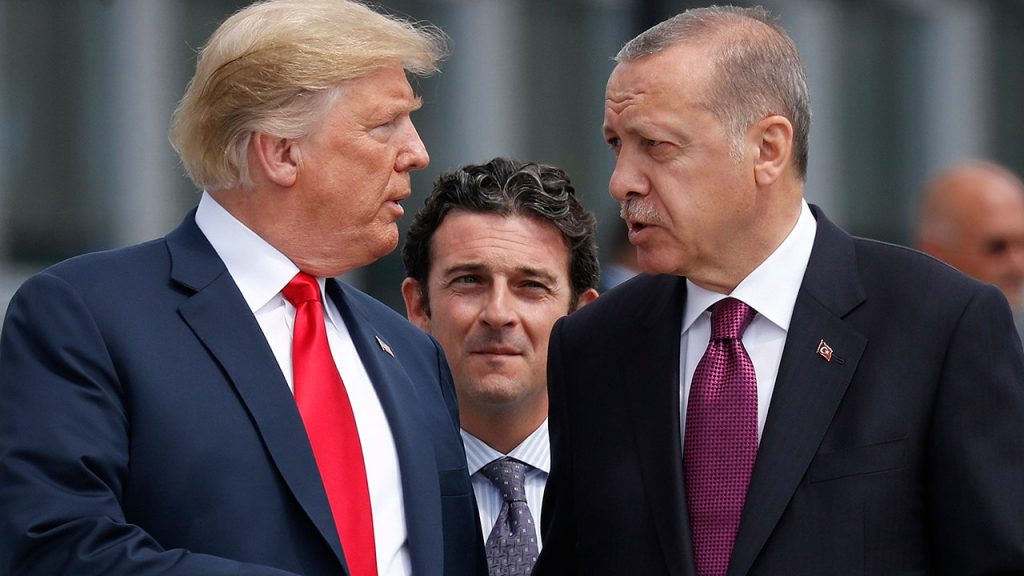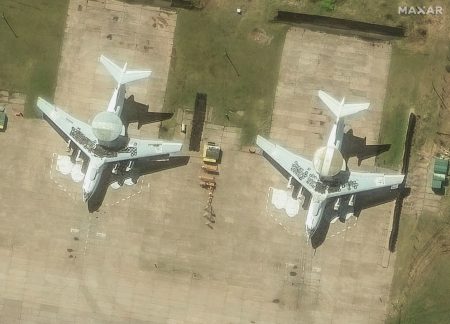The unexpected collapse of the Assad regime in Syria, after nearly 14 years of brutal civil war, has ushered in a new era of uncertainty and reshaped the geopolitical landscape of the region. President-elect Trump’s characterization of the regime change as an “unfriendly takeover” orchestrated by Turkey highlights the complex and often conflicting interests at play. Turkey’s backing of the Hay’at Tahrir al-Sham (HTS), an al Qaeda-derived organization, raises concerns about the future trajectory of Syria under their influence. While the overthrow of Assad, whom Trump labeled a “butcher,” ostensibly marks the end of a protracted and devastating conflict, it simultaneously opens the door to new potential threats and power struggles.
The rapid ascent of HTS, with the support of the Turkish-backed Syrian National Army (SNA), raises questions about the organization’s long-term goals and its ability to govern. Deemed a terrorist network by the U.S., HTS now controls vast swathes of Syrian territory, including the capital Damascus. This development has significant implications for regional stability, particularly given Turkey’s growing influence in the region. The United States faces a complex challenge in navigating its relationships with both Turkey, a NATO ally, and the Kurdish-led Syrian Democratic Forces (SDF), a crucial partner in the fight against ISIS. This delicate balancing act is further complicated by Turkey’s long-standing animosity towards the SDF, stemming from their perceived links to the Kurdistan Workers’ Party (PKK), which Turkey designates as a terrorist organization.
The future of the SDF, a key U.S. ally in the fight against ISIS, hangs in the balance under the new HTS regime. The SDF’s reliance on U.S. support makes them vulnerable to shifts in U.S. foreign policy and the evolving dynamics in the region. Turkey’s increasing influence in Syria, amplified by the fall of Assad, raises concerns about the SDF’s ability to maintain its autonomy and resist pressure from both HTS and Turkey. The recent collapse of a U.S.-brokered ceasefire agreement between the SDF and the SNA further underscores the precarious situation. The reported buildup of SNA forces near the Kurdish town of Kobani signals a potential resumption of hostilities, further jeopardizing the SDF’s position.
The situation in northern Syria is further complicated by the complex interplay between the U.S.-backed SDF and the Turkish-backed SNA. The collapse of the ceasefire agreement and the renewed threat of conflict highlight the challenges faced by the U.S. in mediating between these competing forces. The U.S. faces the difficult task of balancing its commitment to the SDF, a crucial ally in the fight against ISIS, with its relationship with Turkey, a NATO ally. Turkey’s increasingly assertive posture in northern Syria, coupled with its historical animosity towards the SDF, creates a difficult diplomatic landscape for the U.S. to navigate.
The fall of Assad has created a power vacuum in Syria, potentially emboldening Turkey to exert greater influence in the region. This has raised concerns among Western security experts about the potential for instability and the implications for U.S. interests. Experts warn that Turkey’s growing influence could undermine efforts to establish a stable and democratic Syria. The U.S. faces the challenge of balancing its relationship with Turkey, a NATO ally, with its strategic objectives in Syria. The complex web of alliances and rivalries in the region necessitates a cautious and nuanced approach from the U.S. to prevent further escalation and instability.
The evolving situation in Syria requires the U.S. to carefully calibrate its approach to the region. The fall of Assad presents both opportunities and challenges. The U.S. must weigh its commitment to the SDF against its relationship with Turkey, while simultaneously addressing the threat posed by HTS. The potential for renewed conflict between the SDF and the SNA further complicates the situation. A successful U.S. strategy will require deft diplomacy, a clear understanding of the competing interests at play, and a willingness to adapt to the rapidly changing dynamics on the ground. The fragility of the current situation necessitates a long-term perspective, focusing on stabilizing the region and preventing the resurgence of extremist groups. The fate of Syria, and the broader implications for regional stability, remain precariously balanced.










